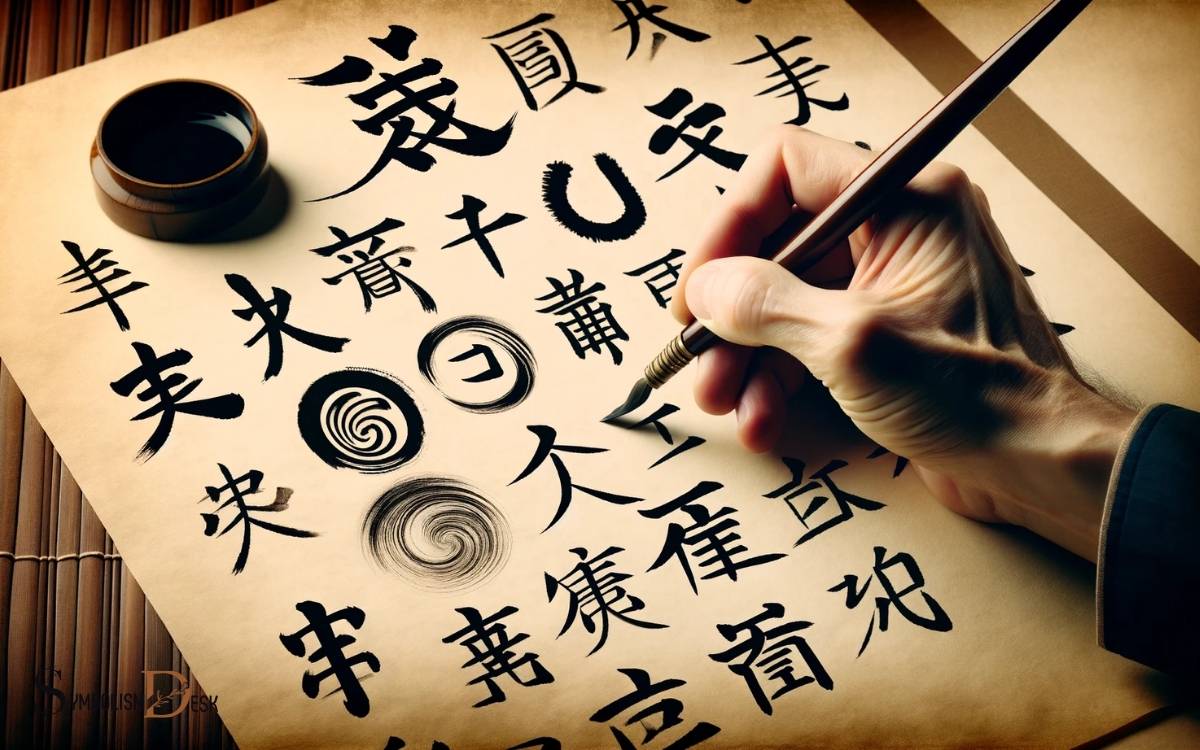Japanese Kanji Symbols for Names: A Comprehensive Guide!
Japanese Kanji symbols have a rich history and cultural significance in the naming tradition of Japan.
Understanding the meaning and pronunciation of Kanji symbols is essential for appreciating the depth and significance of Japanese names.
Each Kanji character carries unique meanings, reflecting the values and aspirations of the individual or their family.
This introduction provides a brief overview of the historical and modern usage of Kanji symbols in Japanese names, shedding light on the cultural and personal considerations that influence the selection of these symbols. The significance of Kanji extends beyond mere representation of sounds; it encompasses deep meanings that can reflect familial lineage, virtues, or aspirations. For many parents, choosing Kanji characters for their child’s name is a careful process that considers not only aesthetic appeal but also the symbolic messages they convey. In this context, learning how to write your name in kanji becomes an important aspect of personal identity, linking individuals to their heritage while embracing the beauty of the language.In Japan, Kanji characters are not only integral to the language but also hold deep significance as they can convey personal attributes or familial heritage. Many parents invest considerable thought into how to write your name in kanji, ensuring that the chosen symbols reflect their hopes and aspirations for their child. Additionally, individuals often revisit and modify their names across different life stages, further illustrating the dynamic relationship between identity and the written form in Japanese culture.
Understanding the intricate world of Kanji symbols for names is a fascinating journey into the heart of Japanese culture and tradition.

Key Takeaway
The History of Kanji in Japanese Names
The history of kanji in Japanese names can be traced back to ancient times, revealing the cultural and linguistic significance of these characters.
Kanji, the adopted logographic Chinese characters used in the modern Japanese writing system, were introduced to Japan around the 5th century. Initially, kanji were primarily used for writing official documents and Buddhist scriptures.
Over time, they began to be incorporated into Japanese personal names, reflecting the influence of Chinese culture and the importance of symbolism in naming practices.
Kanji in names often carry deep meanings, reflecting the hopes, values, and aspirations of the individual or their family.
Understanding the historical context of kanji in Japanese names provides insight into the rich tapestry of Japanese culture and the intricate meanings embedded in these characters.
Understanding the Meaning of Kanji Symbols
One significant aspect of understanding kanji symbols for names is recognizing the profound meanings each character embodies.
Kanji, as a logographic writing system, conveys rich symbolism and cultural significance. Each kanji character carries layers of meaning derived from its historical context, visual representation, and linguistic nuances.
Understanding the meaning of kanji symbols involves delving into their individual components, such as radicals and semantic elements, to grasp their inherent connotations.
Moreover, the context in which a kanji is used can also influence its interpretation and significance, adding another layer of complexity to its meaning.
For names specifically, the choice of kanji can reflect desired traits, aspirations, or familial heritage.
Thus, comprehending the meaning of kanji symbols is crucial for appreciating the depth and significance they bring to Japanese names.
Pronunciation of Kanji in Japanese Names
Understanding the pronunciation of kanji in Japanese names is essential for accurately conveying the intended nuances and meanings, as these characters are deeply intertwined with the cultural and linguistic fabric of Japan.
The pronunciation of kanji in Japanese names can be complex and varies based on factors such as historical context, regional differences, and personal preference. It is important to consider the following:
- The pronunciation of a kanji character can change depending on the specific combination of characters in a name.
- Intonation and stress in Japanese names can significantly impact the overall meaning and emotional resonance.
- Some kanji have multiple possible readings, adding layers of complexity to their pronunciation in names.
- Historical and familial significance can influence the pronunciation choices for kanji in Japanese names.
Cultural Significance of Kanji Symbols
Kanji symbols hold profound cultural significance in Japanese names, reflecting historical, familial, and personal connections.
The choice of kanji for a name is deeply rooted in tradition and often carries a rich historical or familial meaning.
For example, certain kanji may be passed down through generations, signifying a strong family lineage.
Additionally, the selection of kanji can also convey personal attributes or aspirations, shaping an individual’s identity.
Understanding the cultural significance of kanji symbols is crucial in appreciating the depth and complexity of Japanese names.
Each stroke in a kanji character holds meaning, making the process of selecting kanji for a name a thoughtful and meaningful endeavor.
With this understanding, let’s now explore the considerations involved in choosing kanji symbols for personal names.
Choosing Kanji Symbols for Personal Names
The process of choosing Kanji symbols for personal names involves considering the meaningful representation of each symbol and the pronunciation of the name in Kanji.
Understanding the significance of each Kanji symbol and how it aligns with the desired meaning or characteristics of the name is crucial.
Additionally, the pronunciation of the name when written in Kanji should be carefully evaluated to ensure that it reflects the intended sound and essence of the name.
Meaningful Kanji Name Symbols
Selecting meaningful Kanji symbols for personal names involves careful consideration of the characters’ significance and cultural context.
When choosing Kanji symbols for names, it’s essential to remember that each character carries deep meaning and history.
Here are some important points to keep in mind:
- Emotional resonance: The chosen Kanji symbols should evoke positive emotions and resonate with the individual’s personality and aspirations.
- Cultural significance: Understanding the cultural context of the Kanji is vital to ensure that the name reflects and respects Japanese traditions.
- Historical connection: Exploring the historical significance of each Kanji can add depth and richness to the name, connecting it to a legacy or meaningful narrative.
- Personal relevance: The selected Kanji should hold personal significance, aligning with the individual’s values and beliefs.
These considerations ensure that the chosen Kanji symbols create a name that is not only beautiful but also deeply meaningful and personal. Moving forward, let’s delve into the intricate world of name pronunciation in Kanji.
Name Pronunciation in Kanji
When considering meaningful Kanji symbols for personal names, it is important to understand how name pronunciation in Kanji plays a significant role in capturing the essence and identity of individuals. Each Kanji character represents a particular sound and meaning, and when combined, they form a name that carries profound significance. The pronunciation of a name in Kanji can convey attributes such as strength, beauty, or resilience, reflecting the personality and aspirations of the individual. It is essential to select Kanji symbols that not only sound harmonious together but also resonate with the individual’s character. Careful consideration of the pronunciation in Kanji ensures that the chosen symbols authentically represent the person’s identity, fostering a deep connection between the individual and their name.
Modern Usage of Kanji in Japanese Names
In contemporary Japan, kanji characters continue to be widely used in the creation and representation of Japanese names.
Despite the influence of globalization and modernization, the use of kanji in names remains deeply rooted in Japanese culture.
This practice reflects the significance of tradition and heritage in Japanese society, where the choice of kanji for a name carries personal, familial, and cultural meaning.
The enduring use of kanji in names also serves as a means of preserving linguistic and cultural identity in a rapidly changing world.
- Pride in Cultural Heritage
- Connection to Ancestral Roots
- Reflection of Personal Identity
- Preservation of Linguistic Tradition
Conclusion
Kanji symbols have a rich history and cultural significance in Japanese names. Understanding the meaning and pronunciation of kanji is important when choosing symbols for personal names.
The modern usage of kanji in Japanese names continues to be a significant aspect of Japanese culture.
Kanji symbols hold a special place in the hearts of the Japanese people, adding depth and beauty to their personal identities.






